Introduction to Pere Herve Despres Nomme Exorcist Par l eveque De Coutances
The appointment of Père Hervé Després as an exorcist via the Bishop of Coutances is an crucial improvement for the Catholic Church, highlighting the enduring relevance of exorcism in addressing non secular demanding situations. This decision reflects the Church’s acknowledgment of spiritual war as an ongoing truth and its commitment to equipping clergy with the specialised education essential to cope with such issues.
As an exorcist, Père Hervé Després will take on good sized responsibilities. His position will involve helping individuals believed to be experiencing spiritual oppression or ownership. These obligations require a blend of in-depth theological knowledge, psychological perception, and compassionate pastoral care to ensure that interventions adhere to Church teachings and uphold human dignity.
Appointment of Pere Herve Despres
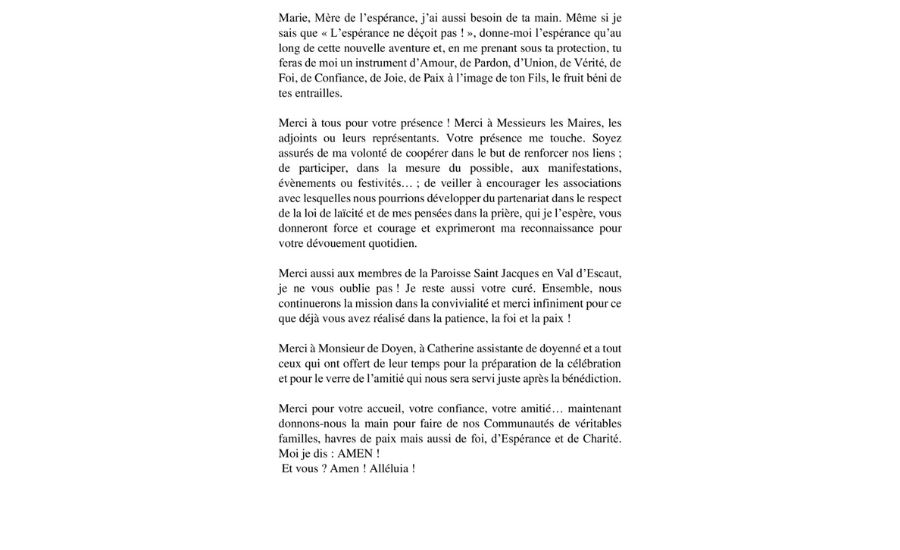
This appointment is probable to have a meaningful effect on the Diocese of Coutances, supplying a dedicated resource for addressing non secular concerns that would otherwise cross unaddressed. On a broader scale, it underscores the Catholic Church’s dedication to addressing both undying and contemporary non secular challenges.
The developing presence of exorcists in diverse dioceses invites mirrored image on how the Church is adapting to the contemporary international, illustrating its perception in spiritual realities and its willingness to interact with those realities thoughtfully and empathetically.
The appointment of Père Hervé Després as an exorcist by the Bishop of Coutances marks an important development within the Diocese, underscoring the continuing significance of exorcism in addressing spiritual challenges. This appointment highlights the Church’s recognition of spiritual warfare and its dedication to equipping clergy with the necessary expertise to support those facing such difficulties.
Background and Qualifications of Père Hervé Després
Père Hervé Després has been a committed member of the clergy in the Diocese of Coutances for many years. His selection as an exorcist follows careful evaluation by the Bishop, reflecting his extensive theological training and pastoral experience. Després’ deep understanding of Catholic doctrine and his practical experience with spiritual guidance have positioned him well for this specialized ministry.
Significance of the Appointment
This appointment is substantial for the Diocese and its members, emphasizing the Church’s ongoing commitment to addressing spiritual and existential concerns. The presence of a trained exorcist within the diocese reinforces the importance of spiritual assist for people who may also sense spiritually oppressed or stricken by unseen forces. It also serves as a reminder of the Church’s culture of confronting the fact of religious demanding situations with seriousness and discernment.
The Role of an Exorcist
The ministry of an exorcist is deeply rooted in Catholic tradition and requires rigorous instruction. Exorcists ought to be ordained monks, chosen based totally on their religious integrity, adulthood, and piety. Their education goes past theology to include psychology, pastoral care, and discernment talents to distinguish among true possession and mental or scientific conditions.
Exorcism, as defined via the Church, is a sacramental act related to prayers and rites aimed toward liberating people from demonic have an impact on. The Church’s approach emphasizes discernment to ensure that only valid cases are treated as such, with thorough assessments often involving collaboration with mental health professionals.
Spiritual and Practical Preparation
Training for exorcists typically involves a combination of practical experience under the guidance of seasoned exorcists and specialized academic courses. The Pontifical Athenaeum Regina Apostolorum in Rome, for instance, has been a key institution in training exorcists since 2005. This training includes the study of theology, canon law, and various disciplines such as psychology and psychiatry.
Spiritual preparation is equally crucial. Exorcists are expected to maintain a profound prayer life and unwavering faith, relying on divine power while approaching their ministry with humility. This spiritual foundation ensures that they act not out of personal ambition but as instruments of the Church’s mission to support those in need.
Community Impact and Reactions
The appointment of Père Hervé Després as an exorcist is likely to resonate differently within the local community. Some parishioners may view this as a reassurance that the Church is prepared to address all spiritual concerns, reinforcing trust and providing comfort. For others, it may raise questions or skepticism, particularly given the complex nature of exorcism and its portrayal in modern media.
Pope Francis has encouraged clergy to respond thoughtfully to cases where exorcism might be needed, aligning with the Church’s careful, respectful approach. The appointment can also potentially draw interest from younger individuals, sparking conversations about faith and spiritual well-being.
Challenges and Considerations
The appointment is not with out its challenges. The practice of exorcism can from time to time be misunderstood or sensationalized, leading to misperceptions about its role and cause. The Diocese of Coutances, below the Bishop’s steerage, ought to talk honestly about the ministry’s reason and the protocols in vicinity to ensure that most effective genuine instances are addressed. This is crucial to prevent unnecessary fear and maintain the credibility of the Church’s response to spiritual matters.
Moreover, the presence of an exorcist may lead to increased requests for assistance, placing demands on Père Després’ time and resources. The Church’s emphasis on discernment helps mitigate this, ensuring that cases brought forward are carefully assessed.
The Appointment of Pere Hervé Després as Exorcist by way of the Bishop of Coutances
The appointment of Père Hervé Després as an exorcist by the Bishop of Coutances marks a significant and meaningful moment for the Diocese of Coutances and the wider Catholic community. This decision highlights the Church’s ongoing commitment to spiritual care and its responsiveness to the evolving needs of its members. Amidst modern discussions surrounding spirituality and mental well-being, this appointment reaffirms the Catholic Church’s traditional teachings while also addressing contemporary societal interests.
Background of Père Hervé Després
Père Hervé Després has dedicated many years to serving the Diocese of Coutances and has earned recognition for his theological expertise and pastoral approach. The appointment comes after a careful and deliberate evaluation by the bishop, who considered not only Père Després’ extensive theological knowledge but also his compassionate presence in the community.
With a strong foundation in theology and experience in pastoral care, Père Després exemplifies the qualities required for this demanding role. His deep understanding of Catholic teachings and his ability to provide spiritual guidance are integral to his suitability for addressing the complexities of exorcism.
The Formal Appointment
The legit declaration of Père Hervé Després’ appointment become made public by means of the Bishop of Coutances during a diocesan event. In his deal with, the bishop underscored the importance of getting an appointed exorcist within the diocese, especially in mild of growing worries about spiritual struggle and demonic influences. The choice followed good sized consultation and adhered to the Church’s canonical regulations and pastoral priorities.
The bishop emphasised that the appointment is a part of the Church’s obligation to manual the trustworthy with care, addressing both non secular and mental demanding situations. This reinforces the Church’s position as a supply of aid at some stage in difficult instances while last rooted in its traditional teachings.
The Significance of This Appointment
Père Hervé Després’ appointment as an exorcist has vital implications for the area people and beyond. It stands as a testament to the Church’s notion in religious realities and its readiness to confront them with both faith and empathy.
The function of an exorcist is traumatic, requiring a blend of religious maturity, theological perception, and psychological acumen. The bishop’s decision to appoint Père Després displays self assurance in his potential to manage this sacred ministry with discernment and care.
This appointment serves as a reminder of the Church’s teachings on religious conflict. The Catholic Church acknowledges the presence of evil and advocates countering it through prayer, the sacraments, and pastoral assist. For those experiencing perceived demonic disturbances, the presence of a trained exorcist gives each assurance and steerage.
Understanding Exorcism and Its Purpose
Exorcism is a specialized form of prayer and sacramental ministry aimed at confronting the influence of malevolent spiritual entities. While popular culture often dramatizes exorcism, the Catholic Church approaches it with deep reverence, rooted in theology and careful pastoral practice.
For Père Hervé Després, this ministry represents the continuation of the Church’s mission to bring spiritual healing. Exorcisms are not conducted casually; they are reserved for cases that meet specific, carefully evaluated criteria, ensuring that each situation is approached with due diligence.
The Church’s Approach to Exorcism
The Catholic Church views exorcism as an essential practice but one that should be carried out with great discernment. In 2004, the Vatican’s Congregation for the Doctrine of the Faith emphasized the need for dioceses worldwide to appoint exorcists due to an increasing demand for responsible and trained clergy to handle such situations.
Pope Francis has addressed the importance of exorcism in modern times, encouraging priests to use discernment and refer cases to exorcists when needed. His perspective underlines a balanced approach that acknowledges the existence of evil while prioritizing compassion and understanding.
It’s crucial to observe that no longer all cases added to an exorcist require exorcism. Many signs and symptoms are rooted in intellectual or scientific conditions, which need to be controlled with the assist of mental fitness specialists. Collaborating with such specialists guarantees a comprehensive and holistic technique to the nicely-being of these affected.
Qualifications for an Exorcist
To emerge as an exorcist, a priest ought to meet numerous qualifications set with the aid of the Church:
Ordination: Only ordained clergymen are authorized to behavior exorcisms.
Episcopal Appointment: The bishop officially appoints the exorcist, granting specific permission for this position.
Spiritual Maturity: The priest need to exhibit deep faith, humility, and piety.
Expertise in Theology and Psychology: A thorough knowledge of religious doctrine and the capacity to parent mental factors are crucial.
Moral Integrity: An exorcist need to lead an exemplary lifestyles that reflects the values of the Church.
It’s not unusual for newly appointed exorcists to go through extra schooling, together with mentorships and workshops, to fully prepare for his or her duties.
The Diocese of Coutances: Tradition and Modernity
Historical Overview
The Diocese of Coutances boasts a records that dates lower back to the 5th century and is intertwined with the spread of Christianity in France. Its early bishops, which includes Saint Lô, performed crucial roles in shaping the non secular landscape of the vicinity.
The medieval period brought the construction of the renowned Coutances Cathedral, a Gothic masterpiece that remains a powerful symbol of faith. Despite facing challenges like the Protestant Reformation and periods of secularization, the diocese has maintained its mission to serve the faithful.
Current State and Challenges
Today, the Diocese of Coutances maintains to adapt to modern-day challenges, along with declining vocations and demographic changes. Nevertheless, it stays an critical center for Catholic existence, assisting over 400,000 parishioners across fifty eight parishes.
The appointment of Père Hervé Després is a testament to the diocese’s dedication to assembly the evolving religious desires of its community at the same time as maintaining its deep-rooted traditions.
Preparing for the Role
The technique of becoming an exorcist involves thorough training that includes theological research, mental schooling, and religious formation. Père Hervé Després may also benefit from specialised courses and mentorship packages supplied by way of institutions including the Pontifical Athenaeum Regina Apostolorum in Rome.
The spiritual guidance thing is equally crucial, because it fosters a strong reliance on divine electricity. This foundational faith is essential for efficiently navigating the demands of the exorcist’s ministry.
Community Impact
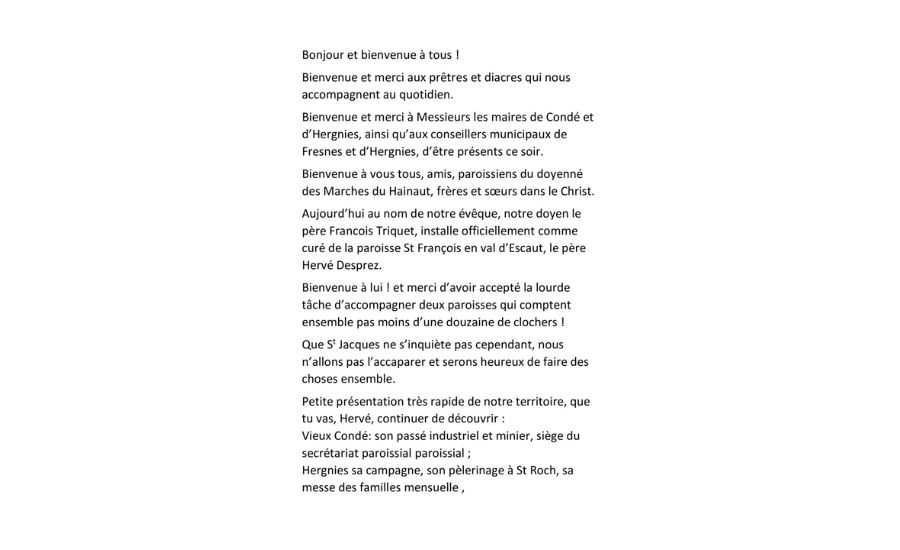
Père Hervé Després’ appointment has resonated in the neighborhood network, reinforcing the Church’s commitment to addressing non secular wishes with compassion and admire. However, this position also brings demanding situations, inclusive of handling expectations and addressing misconceptions approximately the exercise of exorcism.
The Diocese of Coutances will purpose to speak overtly about the exorcist’s function, emphasizing the significance of religion, discernment, and pastoral care. This approach can foster a greater understanding and trust among the faithful.
Facts:
- Appointment of Père Hervé Després:
- Père Hervé Després was appointed as an exorcist by the Bishop of Coutances, highlighting the continued importance of exorcism in addressing spiritual issues.
- His appointment reflects the Church’s commitment to addressing both spiritual and mental challenges.
- Role and Qualifications:
- Exorcists must be ordained priests with deep spiritual maturity, moral integrity, and expertise in theology and psychology.
- The training for exorcists includes a combination of theological education, psychological training, and spiritual development, often involving mentorship under experienced exorcists and courses from institutions like the Pontifical Athenaeum Regina Apostolorum in Rome.
- Exorcism is considered a sacramental act, reserved for cases meeting strict criteria, and must be approached with discernment.
- Significance of the Appointment:
- This role reaffirms the Catholic Church’s belief in the presence of spiritual challenges and the necessity of confronting them with faith and pastoral care.
- It shows the diocese’s effort to address evolving spiritual needs while maintaining tradition.
- Community Impact:
- The appointment can boost trust within the community by showing that the Church is prepared to help those facing spiritual struggles.
- It may also generate questions and skepticism due to the complex nature and portrayal of exorcism in media.
- Historical Context:
- The Diocese of Coutances, established in the 5th century, has a rich history tied to the spread of Christianity in France and the construction of landmarks like the Gothic Coutances Cathedral.
- Despite challenges such as the Protestant Reformation and periods of secularism, the diocese has remained dedicated to its mission.
- Challenges and Communication:
- The practice of exorcism can be misunderstood or sensationalized, leading to misconceptions.
- The diocese is encouraged to communicate transparently to prevent unnecessary fear and maintain credibility.
Summary:
The appointment of Père Hervé Després as an exorcist by the Bishop of Coutances is a significant move that underscores the Catholic Church’s commitment to addressing spiritual challenges in modern society. The position reflects the Church’s understanding of spiritual warfare and its dedication to providing specialized support for those who may be experiencing oppression or possession. Exorcists, like Père Després, must meet strict qualifications, including ordination and extensive theological and psychological expertise. The training involves mentorship, spiritual formation, and academic studies to ensure that exorcists act with discernment and faith. This decision also reaffirms the Church’s mission to care for the spiritual and mental well-being of its members while navigating modern challenges and societal perceptions of exorcism.
For more Information About Education visit Shortthink
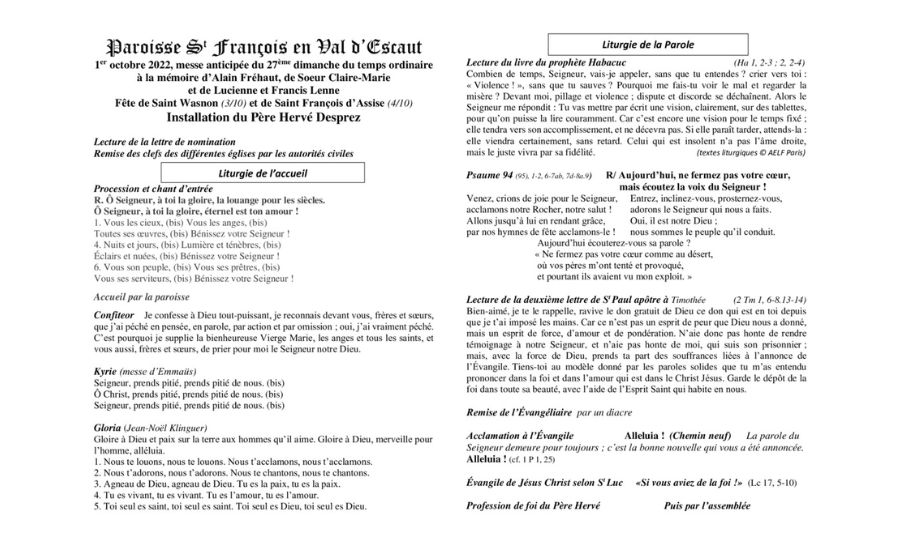


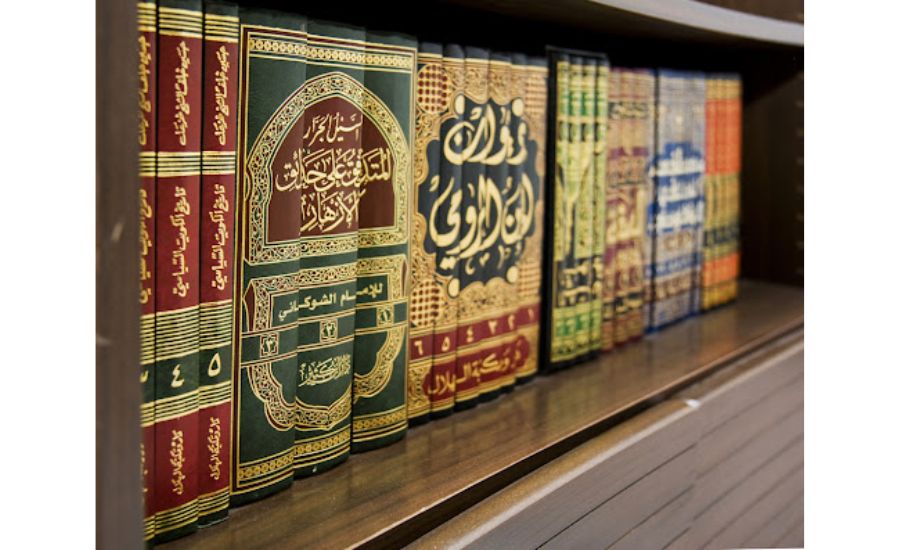
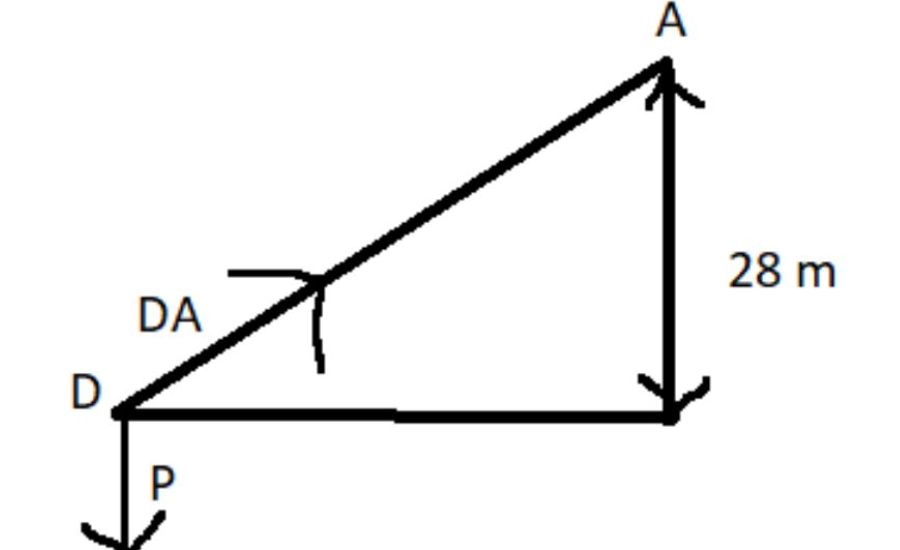
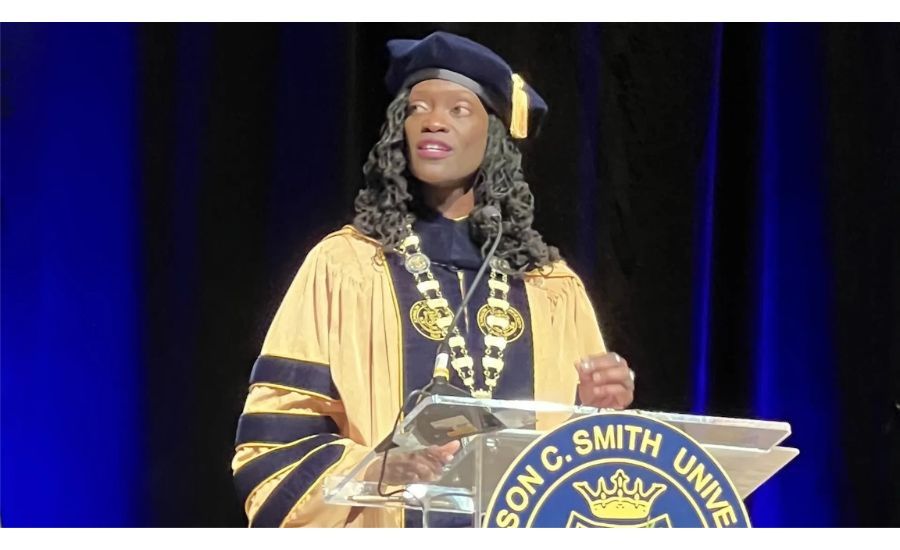
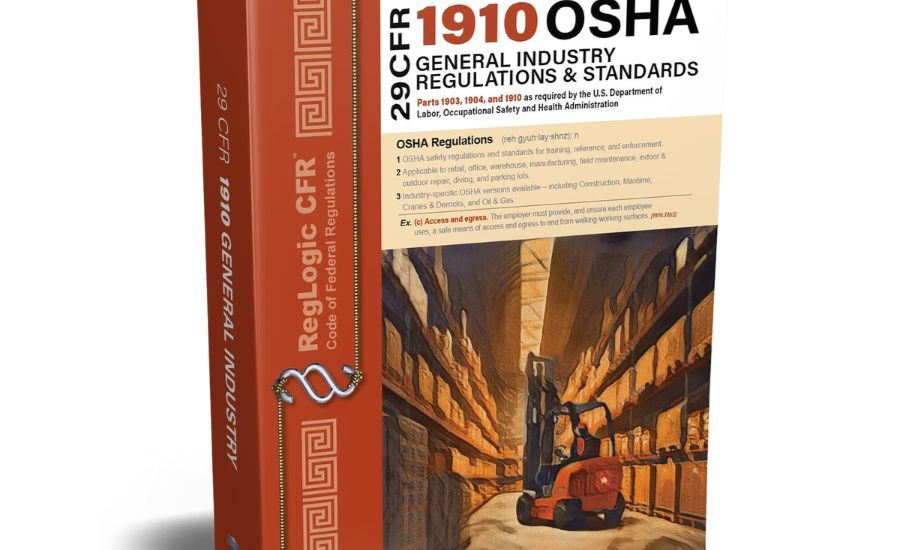




Leave a Reply